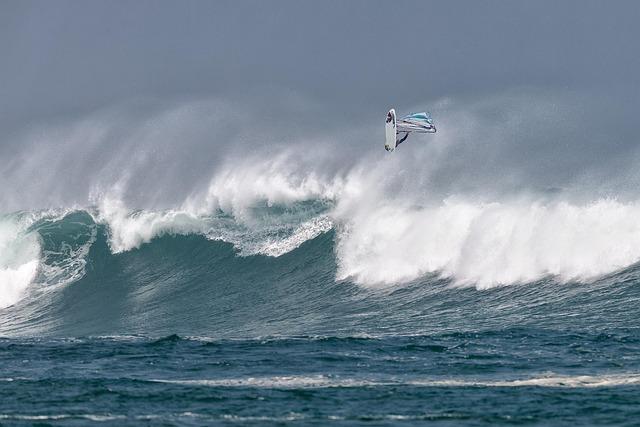Since the onset of the Ukraine crisis in 2014, Western countries have navigated a complex and often contentious landscape regarding their hydrocarbon imports from Russia. As tensions escalated and sanctions tightened, the energy trade between Europe and Moscow has undergone significant shifts, reflecting broader geopolitical rifts and evolving market dynamics. This article provides a detailed analysis of Western hydrocarbon imports from Russia in the wake of the crisis, examining trends, policy responses, and the implications for energy security across Eurasia.
Western Dependence on Russian Hydrocarbons Amid Geopolitical Tensions
Despite mounting geopolitical tensions since the onset of the Ukraine crisis, many Western countries have continued to rely heavily on Russian hydrocarbons, highlighting a complex balance between political stances and practical energy needs. Countries in the European Union, in particular, have found it challenging to sever ties with Russian energy supplies due to limited alternative sources and infrastructure constraints. This dependence is underscored by the seasonal fluctuations in demand and the gradual pace of diversification efforts, which have yet to fully reduce the West’s vulnerability to supply disruptions.
Key factors influencing this sustained reliance include:
- Long-established pipeline networks facilitating easier and cheaper transport
- High volume of liquefied natural gas (LNG) import contracts locked in before tensions escalated
- Limited immediate scalability of renewable energy alternatives
- Energy market volatility pushing buyers towards secure and consistent sources
| Country | 2021 Russian Gas Imports (bcm) |
2023 Russian Oil Imports (million barrels) |
Dependency Reduction Since 2019 |
|---|---|---|---|
| Germany | 55 | 90 | 20% |
| Italy | 29 | 45 | 15% |
| France | 15 | 30 | 10% |
| United Kingdom | 5 | 25 | 5% |
Impact of Import Reductions on European Energy Security and Market Stability
Europe’s swift reduction of hydrocarbon imports from Russia has exposed significant vulnerabilities in the region’s energy architecture. The sudden supply constraints have led to elevated energy prices and heightened market volatility, challenging the long-term goal of ensuring affordable and reliable energy for consumers and industries alike. Several countries have had to resort to emergency measures, including tapping into strategic reserves and accelerating imports from alternative suppliers. However, these stopgap solutions have not fully mitigated the market instability, with energy costs remaining elevated across the continent.
Key consequences of import reductions include:
- Increased dependency on liquefied natural gas (LNG) imports from global markets, often at premium prices.
- Accelerated investments in renewable energy projects and energy efficiency measures as a means to curb reliance on hydrocarbon imports.
- Heightened geopolitical competition for energy supplies, notably between European states and other major consumers like Asia.
| Year | Russian Hydrocarbon Import Volume (bcm) | Average EU Energy Price (€ per MWh) |
|---|---|---|
| 2021 | 155 | 35 |
| 2022 | 70 | 130 |
| 2023* | 30 | 95 |
*Estimated figures
Strategies for Diversifying Energy Sources and Strengthening Supply Chain Resilience
As geopolitical tensions have reshaped the energy landscape, Western nations have accelerated efforts to reduce dependency on Russian hydrocarbon imports by actively broadening their portfolio of energy sources. This transition unfolds through a multi-pronged approach emphasizing not only alternative suppliers but also investing heavily in renewable technologies and energy efficiency initiatives. Key measures include:
- Expanding liquefied natural gas (LNG) infrastructure to facilitate imports from diversified global suppliers-especially the U.S., Qatar, and Norway.
- Boosting renewable capacity by increasing investments in solar, wind, and hydrogen projects to gradually replace fossil fuel reliance.
- Enhancing strategic reserves and storage capabilities to mitigate supply shocks during periods of market volatility.
- Strengthening energy cooperation frameworks within Europe and across the transatlantic partners to secure alternative supply lines.
Complementing these diversification efforts, Western governments and private sector stakeholders have prioritized fortifying supply chain resilience through improved infrastructure and risk management. This includes:
- Modernizing pipeline networks and port facilities to handle flexible sourcing and storage needs swiftly.
- Implementing supply chain transparency tools using digital technologies for real-time monitoring and predictive maintenance.
- Developing contingency strategies such as rapid rerouting and decentralized procurement to avoid disruption.
| Strategy | Focus Area | Expected Outcome |
|---|---|---|
| LNG Infrastructure Expansion | Supply Diversification | Reduced dependency on single suppliers and increased energy security |
| Renewable Capacity Boost | Sustainable Energy Transition | Lower carbon emissions and long-term fossil fuel replacement |
| Strategic Reserves Enhancement | Supply Stability | Increased resilience against supply disruptions and market shocks |
| Energy Cooperation Strengthening | Regional Collaboration | Secured alternative supply chains and enhanced geopolitical leverage |
| Pipeline and Port Modernization | Infrastructure Flexibility | Faster response to changing supply sources and improved handling capacity |
| Supply Chain Transparency Tools | Digital Monitoring | Real-time tracking, predictive maintenance, and reduced risk of failures |
| Contingency Strategy Development | Risk Mitigation | Minimized supply disruptions via rapid rerouting and decentralized procurement |




